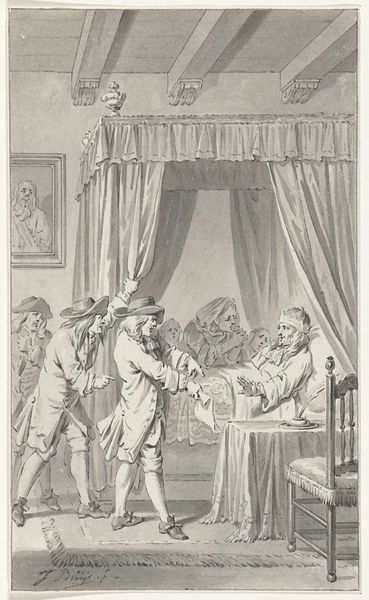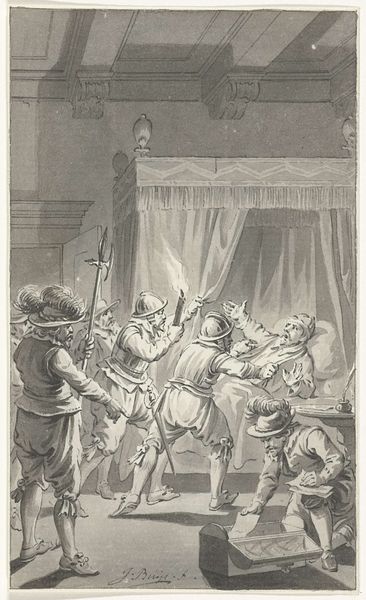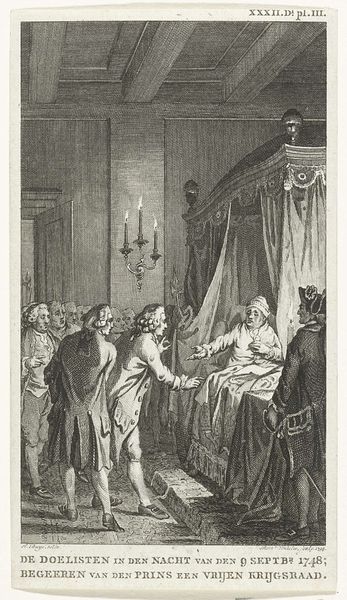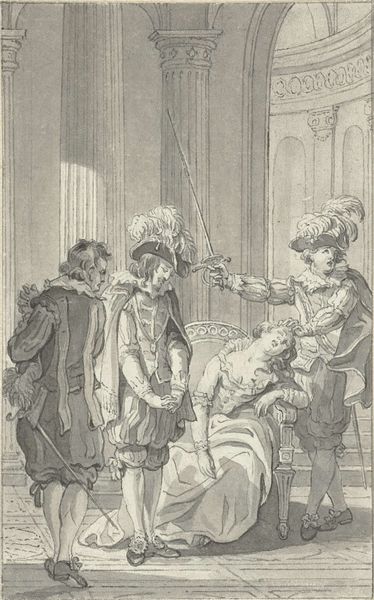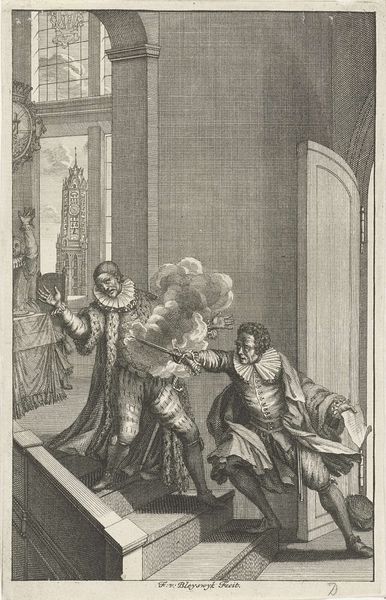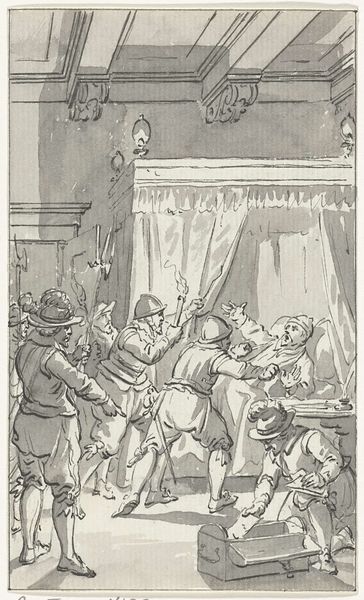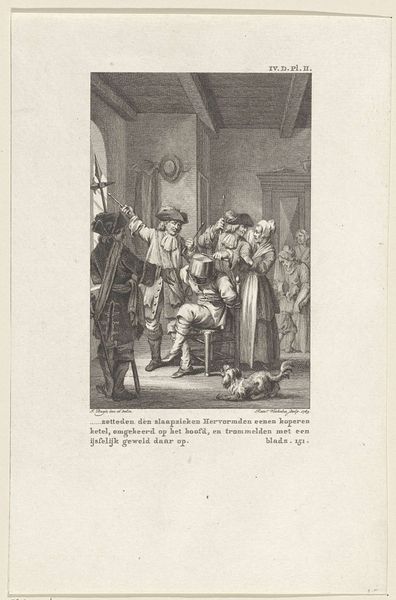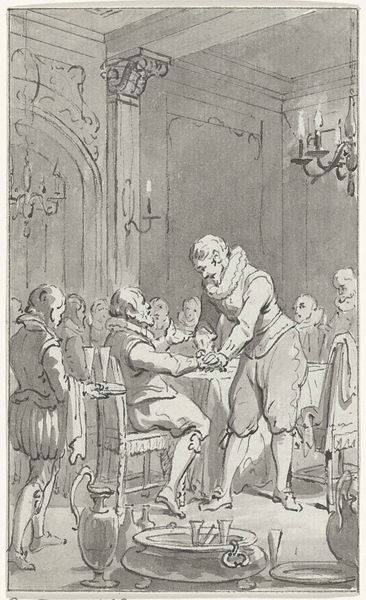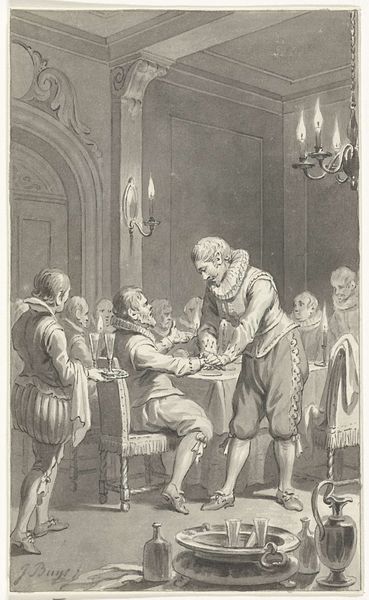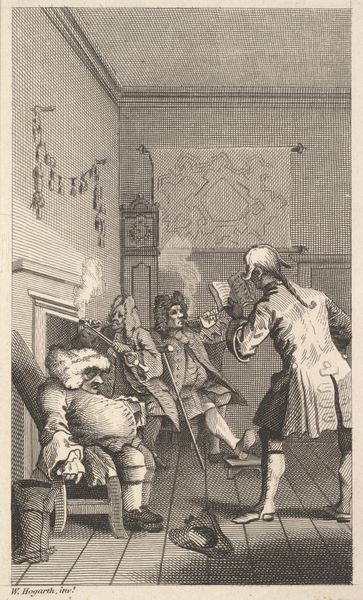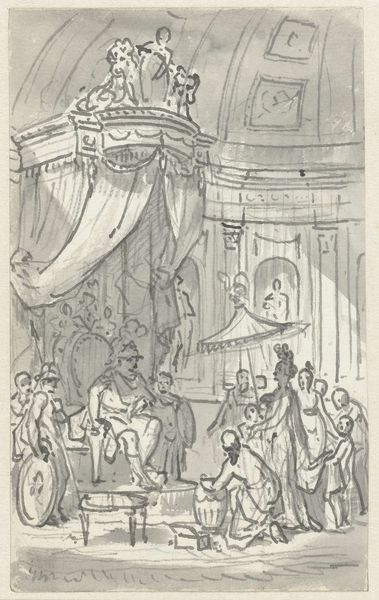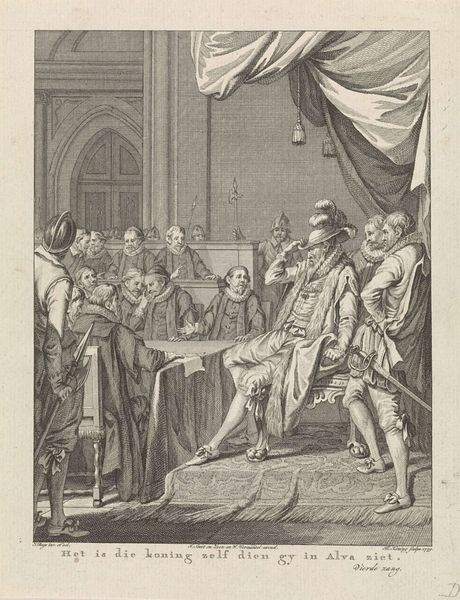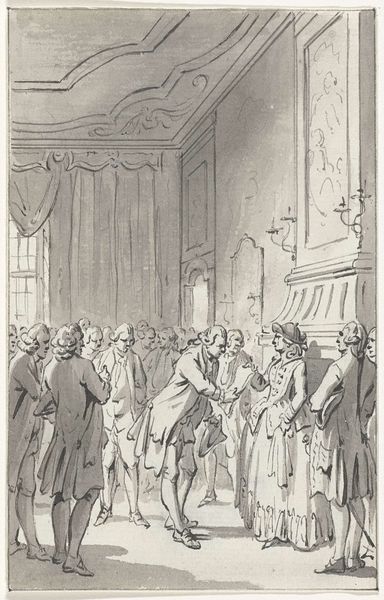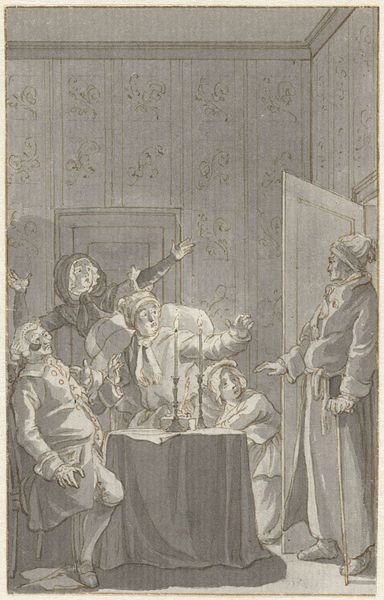
Burgers van Dordrecht dwingen Cornelis de Witt het Eeuwig Edict in te trekken, 1672 1789
0:00
0:00
jacobusbuys
Rijksmuseum
Dimensions: height 150 mm, width 89 mm
Copyright: Rijks Museum: Open Domain
Editor: This drawing, created in 1789 by Jacobus Buys, is entitled "Burgers van Dordrecht dwingen Cornelis de Witt het Eeuwig Edict in te trekken, 1672". The monochromatic sketch in pen and ink presents a rather tense scene around what appears to be a sickbed. What can you tell me about the historical context of this piece? Curator: This work depicts a pivotal moment of political turmoil. Consider the date 1789: this isn't simply a depiction of an earlier event; it is made on the eve of the French revolution. How might the artist, or more likely, the patron, be making a comment on the balance of power between rulers and the ruled? Buys’ choice to represent this specific historical event, Cornelis de Witt being forced to repeal the Perpetual Edict, speaks volumes about the contemporary political climate in the Netherlands and Europe. It subtly champions civic power at a time when monarchies were being questioned across the continent. Editor: So, the drawing isn't just illustrating history; it's participating in a political discourse of its own time. What do you mean by "championing civic power?" Curator: Exactly. Think about the power dynamics: a group of armed citizens confronting a powerful official. How does Buys portray that tension visually? Is there a sense of impending violence or, perhaps, controlled assertiveness on the part of the Dordrecht citizens? The figures surrounding de Witt seem determined, embodying the collective will against individual authority. It is about civic duty. Editor: I see what you mean; it's like the artist uses a historical scene to discuss the importance of citizen involvement in governance. I hadn’t considered the political angle within the piece itself! Curator: Indeed. It’s crucial to analyze how historical pieces are products of the moment of their creation, subtly reflecting and even shaping socio-political thought. Analyzing such artworks, such drawings in this case, is never only about that single moment they reflect, but a multitude of reverberating events in history. Editor: I will definitely keep that in mind! Thank you for this rich lesson.
Comments
No comments
Be the first to comment and join the conversation on the ultimate creative platform.
